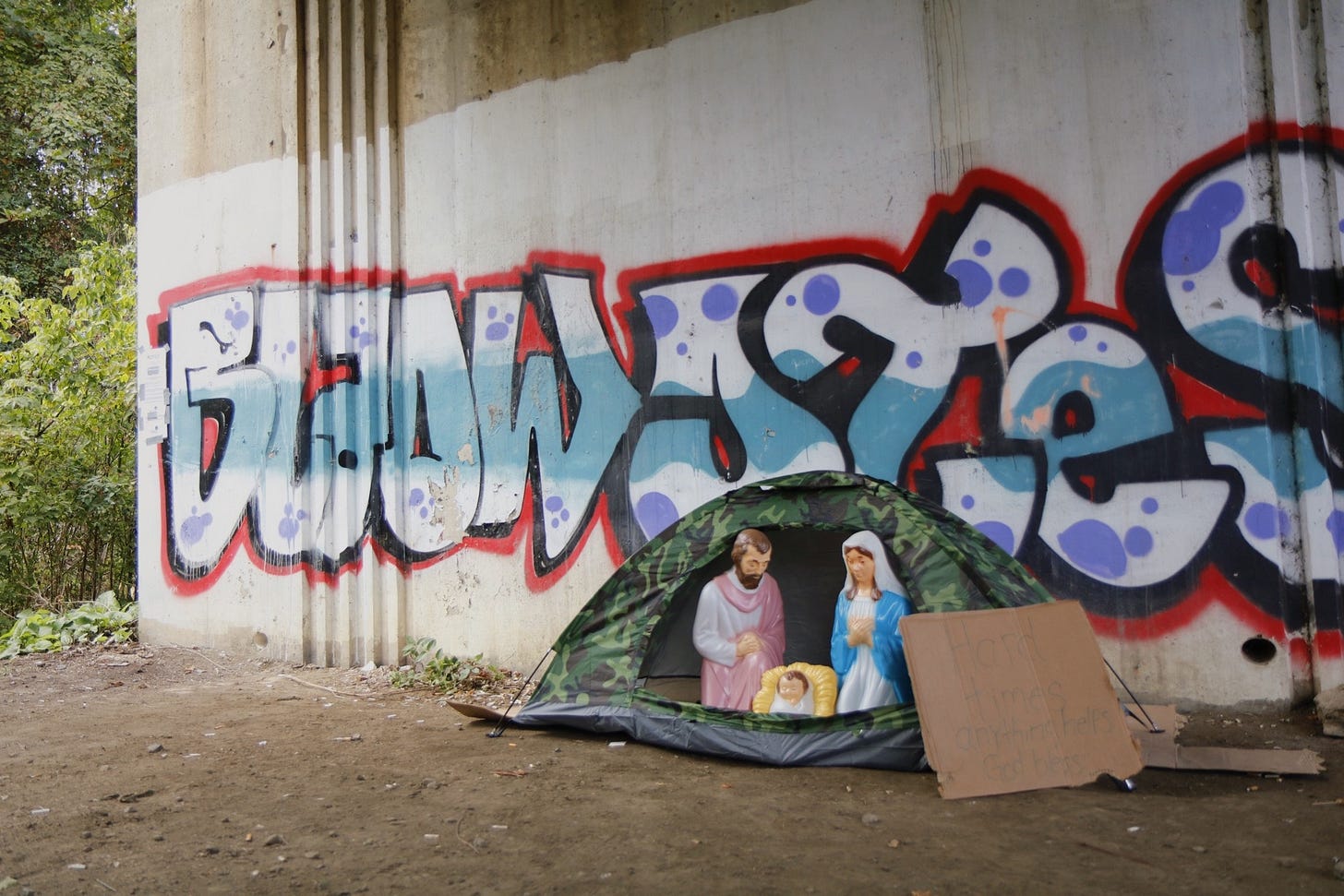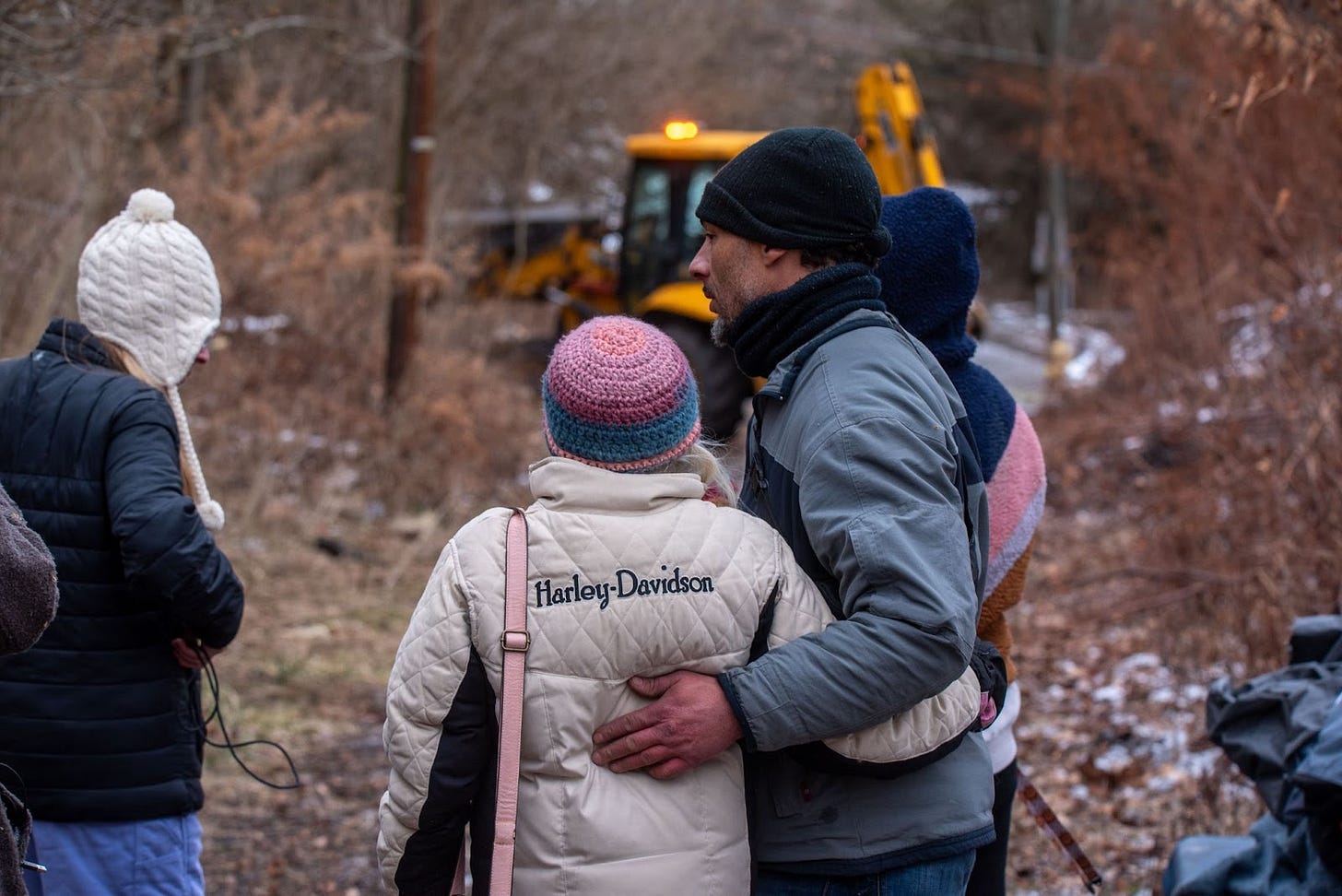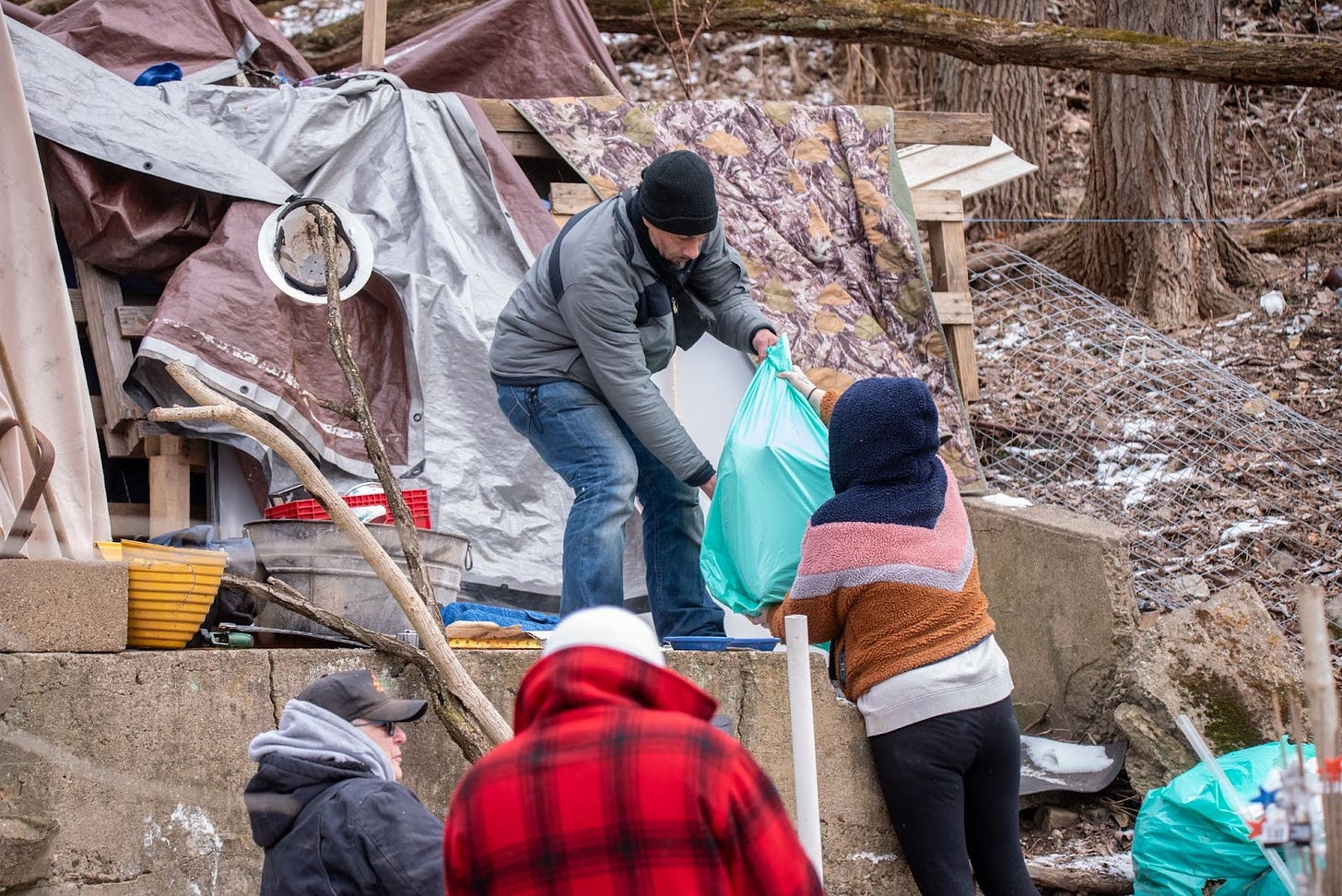UNFRIENDLY CITY: How Wheeling became West Virginia's capital of criminalizing homelessness
The city of Wheeling has largely relied on demolitions to solve its homelessness problem, pushing their most vulnerable citizens to the margins. This practice of criminalization has continued in 2024.
As dawn broke over the city of Wheeling on Thursday, January 18, on the heels of a statewide emergency declaration related to a massive winter storm, city officials mobilized dump trucks and bulldozers to a hillside in the neighborhood of East Wheeling.
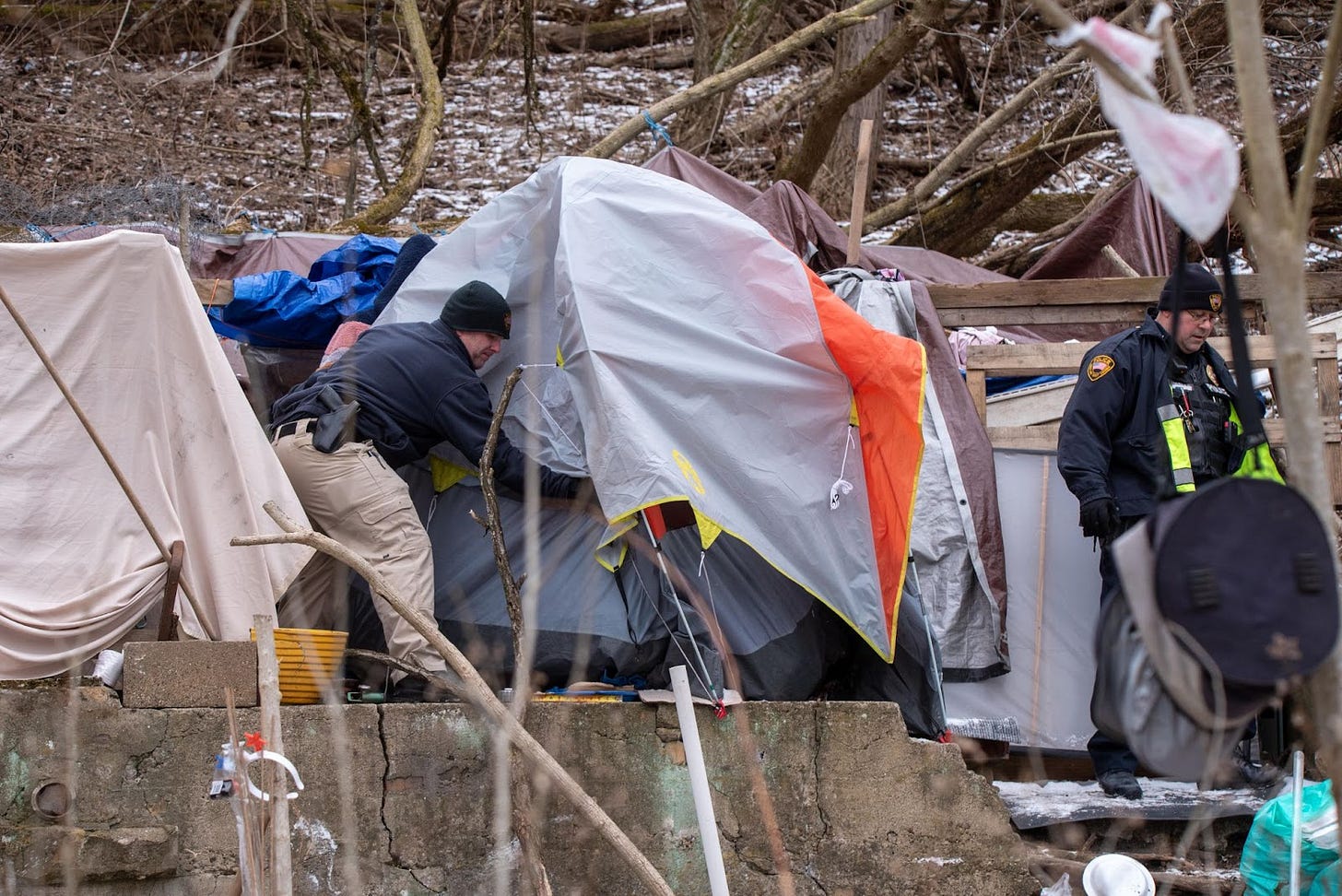
Those targeted were homeless individuals—people whose entire lives were contained in meager tents and tarp shelters on abandoned land owned by the city. In a matter of hours, the last remnants of property owned by the city’s most vulnerable were scooped up and trashed.
This action became the largest demolition of “urban camps” in Wheeling—the culmination of a years-long battle to criminalize homelessness in the city.
In the summer of 2020, the West Virginia Division of Highways asked Wheeling officials to clear a large encampment on a vacant lot under the US-250 overpass on 18th Street. The site was home to dozens of individuals where local service providers provided access to showers, bathrooms, health services, and other care during the first waves of COVID-19.
Before the city of Wheeling could sweep the camp, the American Civil Liberties Union of West Virginia sued to stop the demolitions. Their lawsuit was successful–in part–when federal Judge John Bailey of the West Virginia Northern District set guidelines for the city to follow when conducting clearings of homeless camps, including a two-week public notice to the sites and service providers.
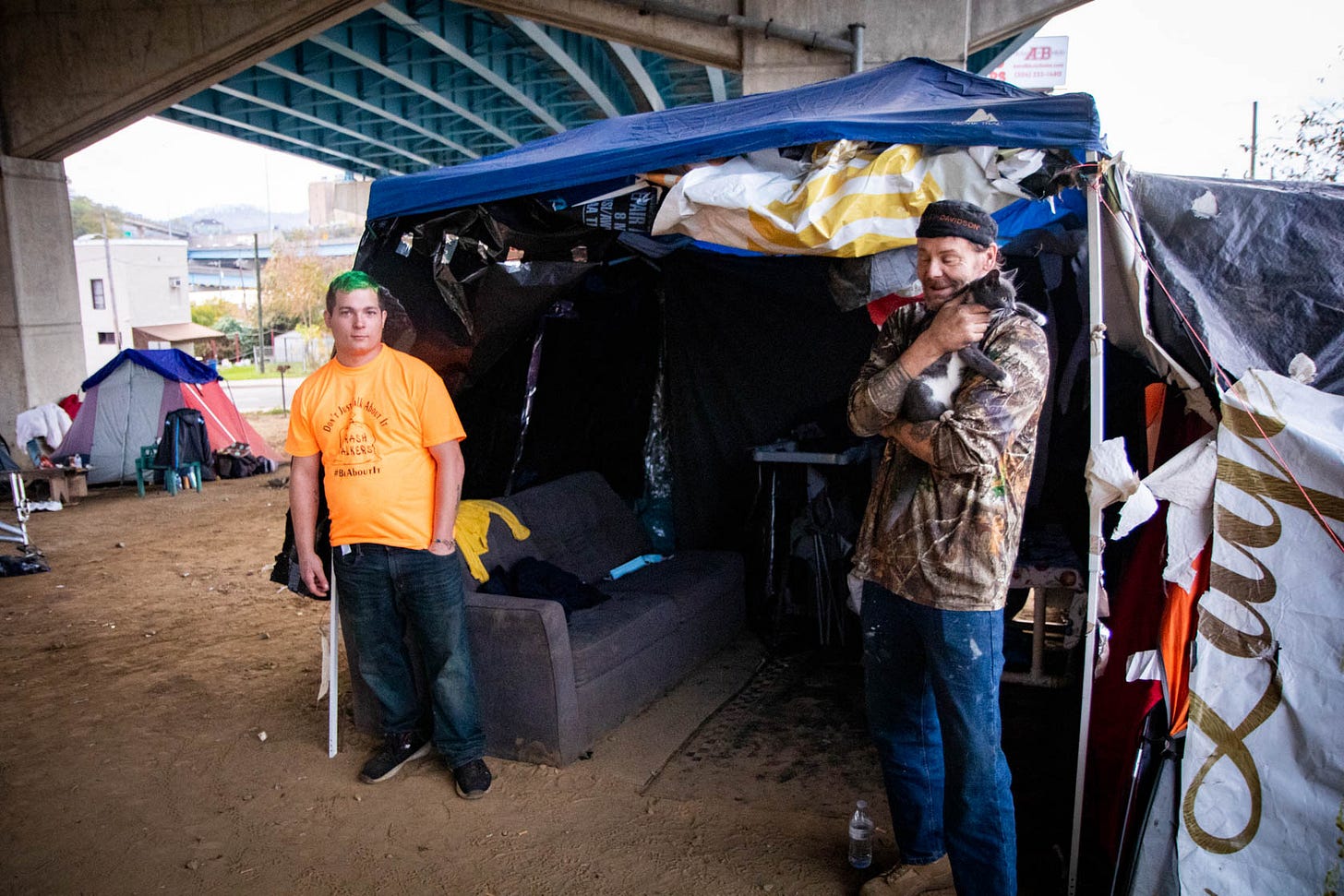
This camp was ultimately vacated, leaving homeless residents in the city to seek refuge in other locations along service roads, waterways, and in the woods.
In 2021, the city of Wheeling created the homeless liaison position, aiming to increase coordination between the city, service providers, and homeless residents.
For the remainder of 2020 through 2023, the city continued to close smaller camps deemed unsafe, with sites along Big Wheeling Creek and the Ohio River, as well as Wheeling Heritage Trail, targeted first.
Throughout 2023, city officials told homeless residents to relocate their camp to the East Wheeling hillside above the Nelson Jordan Center—a spot leaders said would be safe from further demolitions. Many heeded these calls, with more than three dozen individuals setting up camp along disused public stairways and abandoned roads.
In September of 2023, Parkersburg city council adopted an ordinance banning urban camping in their city. This ban has been passed in at least a dozen other municipalities across the nation with similar, if not exact, wording.
Around that same time on September 29, 2023, city manager Robert Herron set his eyes on the East Wheeling hillside camp, posting a notice to vacate on trees outside the camps. This came despite his office’s year-long campaign to centralize homeless people on the site.
The next day, September 30, 2023, Herron was quoted in The Intelligencer saying the city of Wheeling would consider a similar ordinance to Parkersburg, banning urban camping.
The city manager, a council-appointed role, holds broad, unchecked authority in Wheeling as the city’s lead executive. Herron has held the role for 22-years, or before any of the current city councilors or mayor were elected.
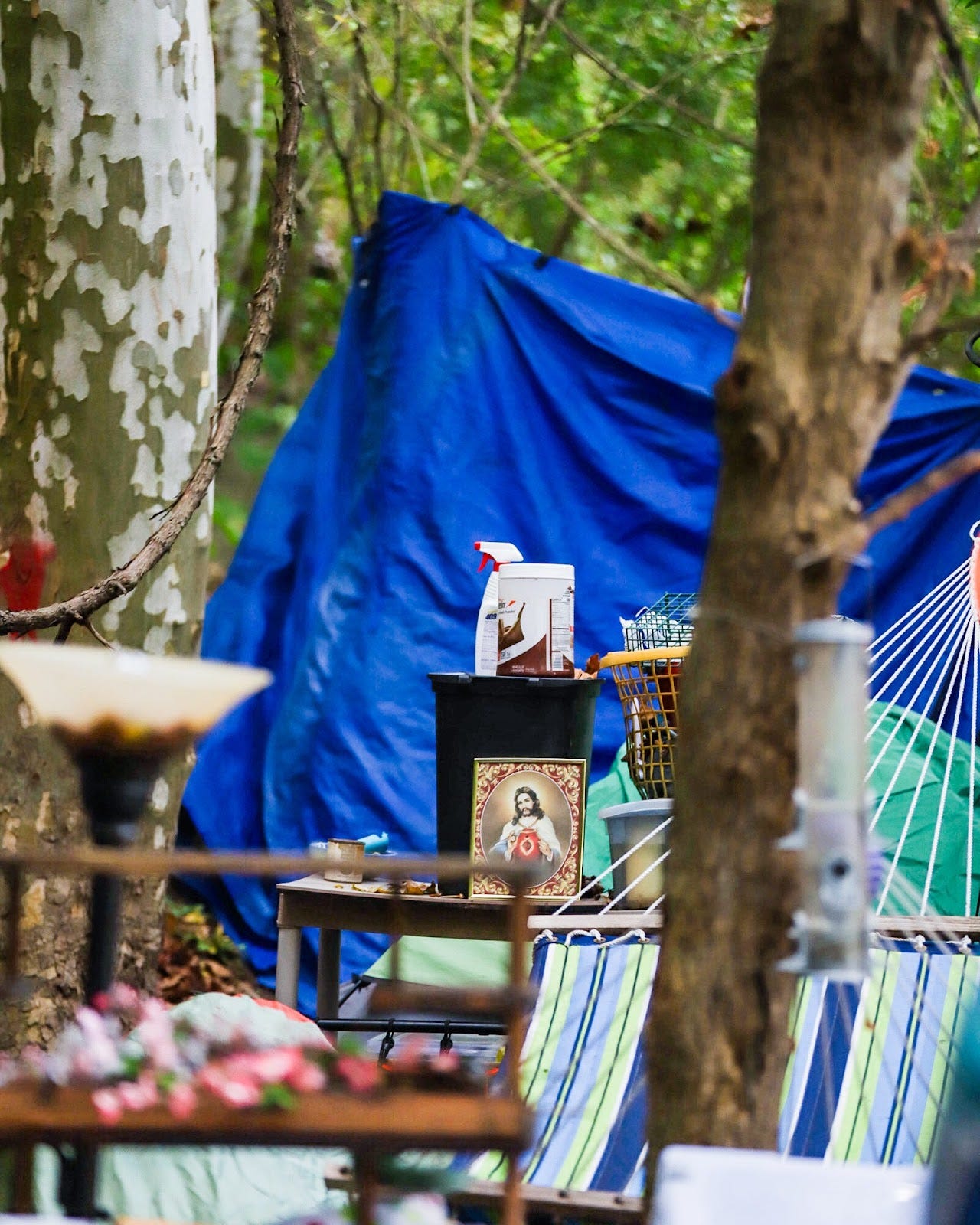
Herron’s push to demolish the East Wheeling hillside camps was ultimately derailed after weeks of action by service providers and activists culminated in a day-long demonstration outside of his office. It didn’t stop his and the council's desire to ban the practice of urban camping.
A week after delaying the eviction, Wheeling city council met and introduced their ordinance banning urban camping—a word-for-word copy of Parkersburg’s ban. At that meeting, councilors said they were committed to solving the problem.
On November 7, 2023, however, the council proved its only solution was a blanket ban when they adopted an amended ordinance by a vote of 5 to 2. Championing the measure were Councilors Jerry Sklavounakis, Ward 4, and Ben Seidler, Ward 2. They were joined by Vice Mayor Chad Thalman, Ward 1, Councilor Ty Thorngate, Ward 5, and Councilor Dave Palmer, Ward 6, in adopting the ordinance.
Councilor Rosemary Ketchum, Ward 3, and Mayor Glenn Elliott were in the minority.
On December 15, 2023, the Life Hub WV opened its Winter Freeze shelter — the first low barrier shelter of its kind in the state. The shelter had to fight for $100,000 in funding from the city, despite it being used by proponents of the camping ban as a solution. The shelter operates from 8:00 p.m. to 8:00 a.m., and will close on March 15, 2024.
The shelter has capacity for 40 to 50 individuals. Melissa Adams, who is the shelter’s director and the city of Wheeling’s homeless liaison, has reported that Winter Freeze has been at capacity, or over capacity, since opening.
On January 3, 2024, just days after the ban went into effect, a dozen city officials, two bulldozers, and two dump trucks attempted to illegally demolish a small, two-person camp without warning. One of the bulldozers came within eight feet of a tent where one man was sleeping.
After outcry from service providers, including a reminder to city manager Herron of the federal court order he was a party to, and which he was seeking to violate, Herron’s office retreated and posted two-week notices, with an effective date of January 17.
At the January 16 city council meeting, Councilor Seidler attempted to claim a process for requesting exemptions to demolitions existed in the ordinance, and that no one had utilized it. This was the first mention of such a process, and that process is not detailed in the ban as adopted.
All of this culminated in the action we saw Thursday, January 18, when several camps were demolished, including a handful of people’s personal belongings.
The first camp to be targeted housed a couple—one man and one woman. When city officials arrived at 8:00 a.m., Terry was at a local warming center as morning temperatures sat in the low teens. Her partner, Seven, was at work.
Service providers raced to warn them. They assisted in bagging up what little they could before demolitions started at 10:30 a.m. The couple watched as city employees, upset over the job they were told to do, loaded their site into the back of two dump trucks.
No city councilor who supported the urban camping ban showed up on the day of demolition to see what their work had culminated in.
Those who voted in opposition to the ban didn’t show up, either.
City manager Robert Herron, who ordered the demolitions and has full authority to stop them, joined council in not appearing that day.
Around a dozen citizens braved the cold to witness what their city was doing. This included local news agencies, independent reporters, and several representatives from Street Moms, the House of Hagar, Catholic Charities, and Project HOPE.
Despite the ACLU of West Virginia filing a lawsuit on Tuesday, January 16, to stop the urban camping ban, and a further effort by the group on Thursday seeking an immediate injunction to the demolition, crews continued their action, turning their attention to the north-west side of the hill in the afternoon.
One of those camps targeted, which sits above the Nelson Jordan Center, was home to a couple who had lost their home in 2023 due to foreclosure. The couple, Doug and Shelly, had kept much of their household belongings in totes lining their well-decorated campsite, photographed for The Hudson Editorial in October. They began staging these totes for pickup behind the Nelson Jordan Center.
They planned for a truck and trailer to help them load their totes of household items, changes of clothes, homemade art, and other personal belongings, but the city began trashing their items before volunteers could arrive. For the second time in less than a year, Doug and Shelly watched as their life was upended through circumstances they had no control over.
These demolitions left service providers and homeless people in the city on edge, awaiting the potential for more destruction the following day. However, four-inches of snow seemed to halt the city from conducting further sweeps on Friday, January 19.
The city sat down with the ACLU of West Virginia to hammer out a deal to see a campsite created for homeless people to stay without fear of demolition. City manager Robert Herron also granted a 10-day reprieve from further action, pushing the inevitable to Monday, January 29.
On Tuesday, January 23, the ACLU of West Virginia announced victory with a finalized deal with the city of Wheeling. In it, the group abandoned their legal action against the urban camping ban after the city exempted a site underneath the US-250 overpass on 18th Street. The city said this site would be safe from demolition.
Service providers said more work was needed in a letter sent to city officials that same day.
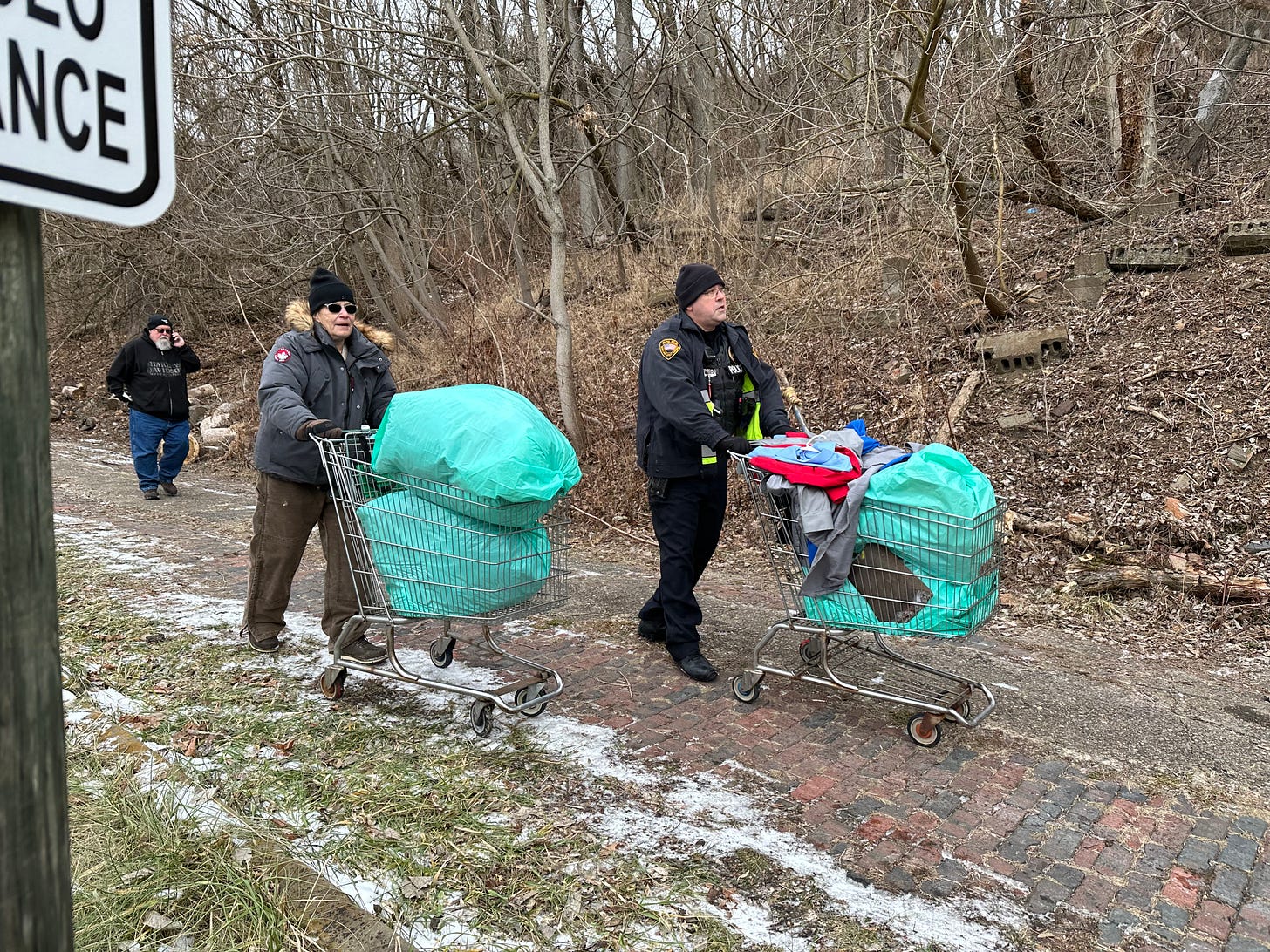
The agreed site was home to a homeless camp in 2020, as mentioned above. The land is owned by the West Virginia DOH, not the city of Wheeling. No public agreement exists stating a similar action to 2020 will not occur again.
Service providers also noted that its designation as an exempted camp, rather than a managed camp, leaves service organizations to operate the site without necessary cooperation from city partners. Catholic Charities Neighborhood Center will be tasked with operating the site, with several other organizations pledging to support it as well.
The Laughlin Memorial Chapel, an afterschool program for area-children, have expressed their concern. The chapel sits adjacent to the camp, and their programming sees around a hundred students daily. The director at Laughlin signed a letter to the city expressing her concern.
Outcry over the demolitions have been widespread on social media and in the local paper. While most on council have been silent amid the pushback, Mayor Glenn Elliott has defended himself against questions over his leadership.
Some calls have been made for the removal of city manager Robert Herron. Such action would require at least five members of city council to support the action.
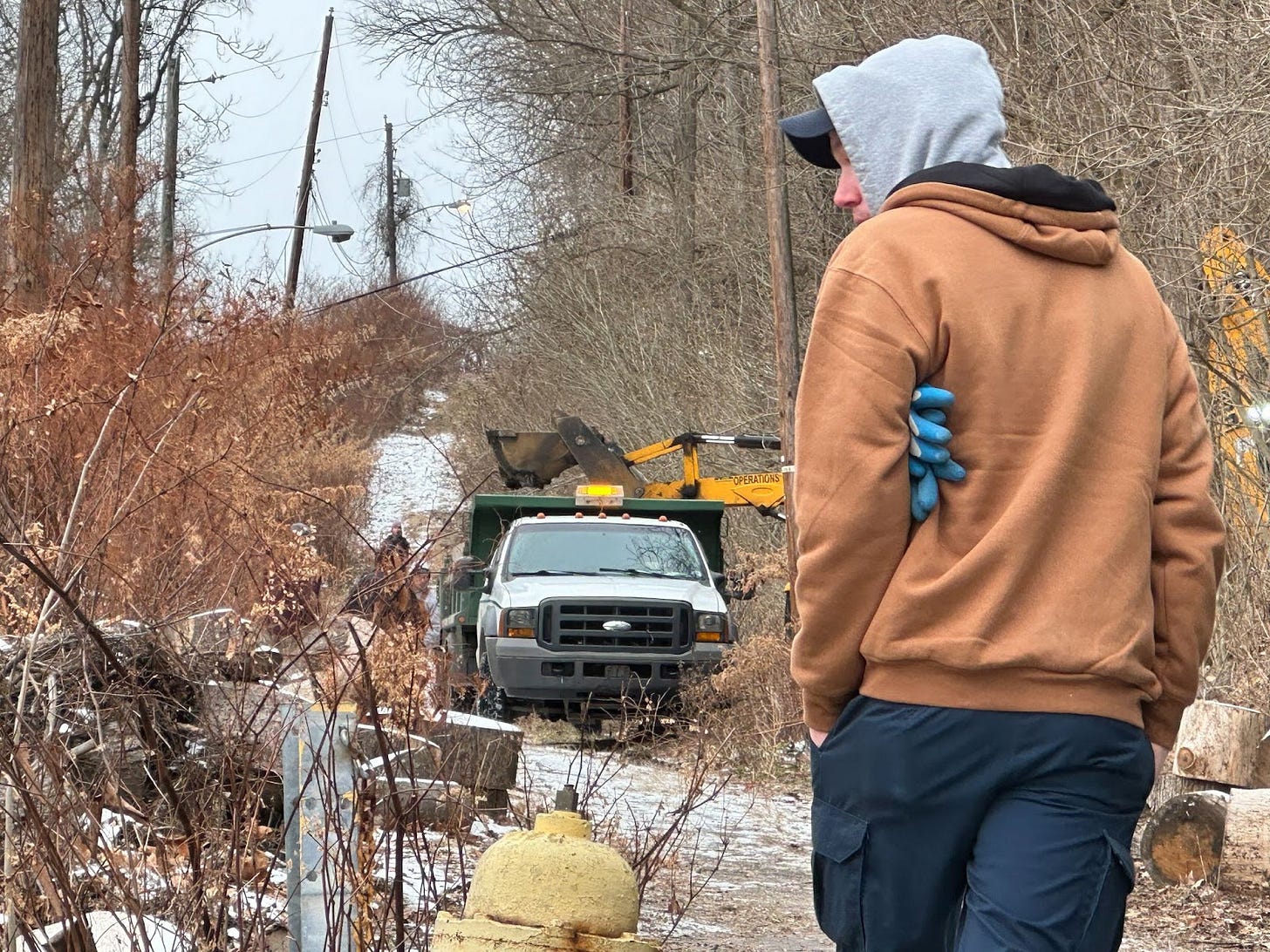
As it stands, demolitions at non-exempted camps will continue starting January 29.
Wheeling’s city council will meet again on Tuesday, February 6, at 5:30 p.m.




